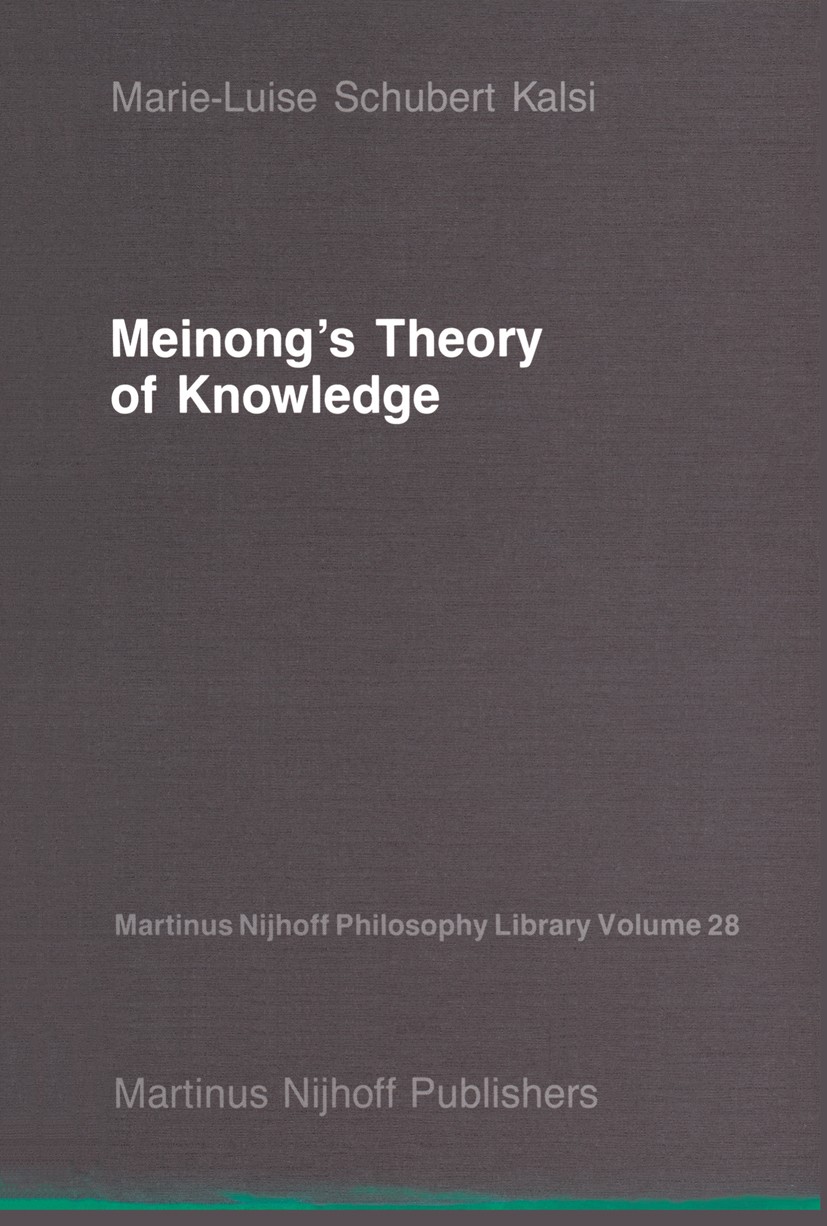| 书目名称 | Meinong’s Theory of Knowledge | | 编辑 | Marie-Luise Schubert Kalsi | | 视频video | http://file.papertrans.cn/631/630247/630247.mp4 | | 丛书名称 | Martinus Nijhoff Philosophy Library | | 图书封面 |  | | 描述 | In recent years there has been a renewal of interest in Meinong‘s work; but since the bulk of it is still encased in his quite forbidding German, most students are limited to the few available translations and to secondary sources. Unfortunately Meinong has been much maligned - only in a few instances with good reason - and has consequently been dealt with lightly. Meinong stood at a very important junction of European philosophical and scien tific thought. In all fields - physics, chemistry, mathematics, psychology, philolo- revolutionary strides were being made. Philosophy, on the other hand, had run its post-Kantian course. New philosophical thinkers came from different disciplines. For example, Frege and later Russell were mathematicians, Boltzmann and Mach were physicists. Earlier Bolzano and then Brentano were originally theologians, and Meinong was a historian. 1 The sciences with their new insights and theories offered an enormous wealth of information which needed to be absorbed philosophically; but traditional philosophy could not deal with it. Physics presented a picture of reality which did not fit into the traditional schemes of empiricism or idealism. Ontological and | | 出版日期 | Book 1987 | | 关键词 | Bertrand Russell; Ernst Mach; Europe; German; Immanuel Kant; empiricism; issue; memory; object; philosophy; ph | | 版次 | 1 | | doi | https://doi.org/10.1007/978-94-009-3641-6 | | isbn_softcover | 978-94-010-8129-0 | | isbn_ebook | 978-94-009-3641-6Series ISSN 0168-5090 | | issn_series | 0168-5090 | | copyright | Martinus Nijhoff Publishers, Dordrecht 1987 |
The information of publication is updating

|
|
 |Archiver|手机版|小黑屋|
派博传思国际
( 京公网安备110108008328)
GMT+8, 2026-1-16 09:20
|Archiver|手机版|小黑屋|
派博传思国际
( 京公网安备110108008328)
GMT+8, 2026-1-16 09:20


